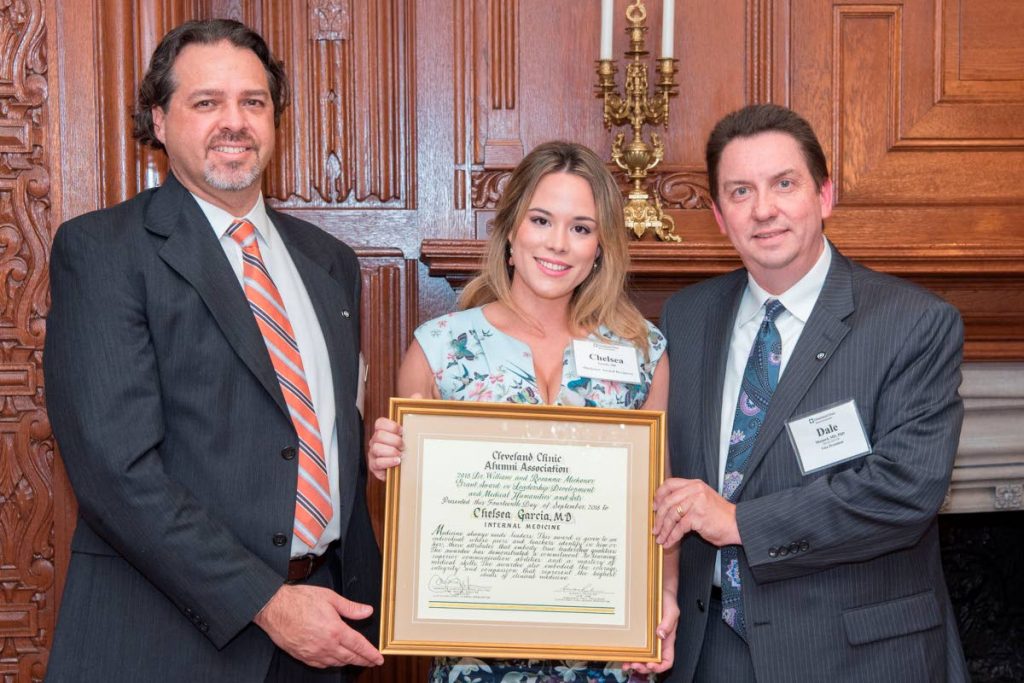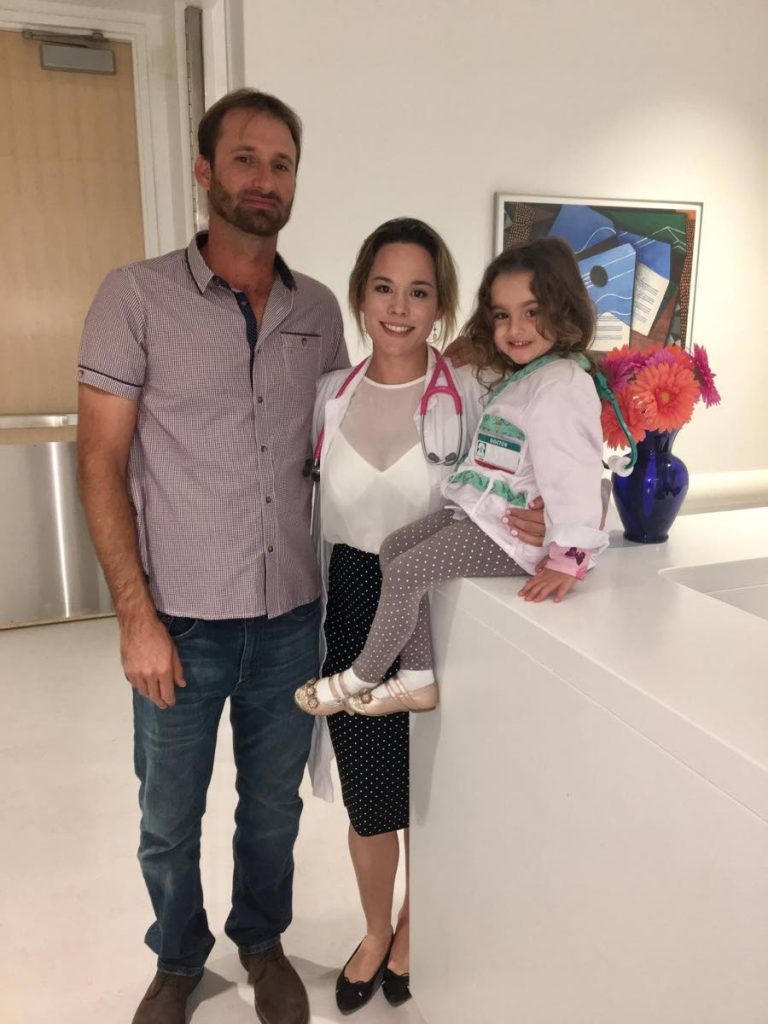Quality of life

KIERAN ANDREW KHAN
Dr Chelsea Garcia, a Holy Name Convent, Port-of-Spain alumna, an Open Scholarship winner and graduate of the Royal College of Surgeons, Ireland (RCSI), was recently awarded the prestigious Michener Humanitarian Award bestowed to a physician that embodies the courage, integrity and compassion that represent the highest ideals of clinical medicine. Currently practicing with the Cleveland Clinic Florida, she is the first physician from the organisation to receive this award.
“Winning my Open Scholarship in Environmental Science allowed me the opportunity to attend medical school. I owe so much to my alma mater, Holy Name Convent. They not only provided me with an exceptional education and strong religious faith but shaped me into the woman I am today. My teachers there have had and continue to have a huge impact on my life,” she pointed out.
“I grew up in a loving home and my family and friends have supported me every step of the way,” she noted. “Like many Trini women, I met my husband in a Carnival fete and three months later I found out I was pregnant. I was in the last year of medical school. I really believe that everything in life happens for a reason and sometimes life throws curve balls, that you never wanted but needed.
“I gave birth to my daughter in between my final medical and surgical exams,” she recalled, “With the help of one amazing man, who took paternity leave and my mother, grandmother and friends, who flew all the way to Ireland to do the night shift and support me through the journey, I made it. Behind every strong man may be a woman, but behind every strong woman is a tribe and that is what I have, a whole big Trini tribe. The love and sense of family you find in Trinidad is truly unique.”

Two months after giving birth to her daughter she graduated from The Royal College of Surgeons, with a first place in Paediatrics, landing her on the cover of two prestigious Irish newspapers.
She returned to Trinidad and worked at the North West Regional Health Authority, under Dr Dylan Narinesingh, a mentor and friend. Afterwards, Dr Garcia chose to do her Internal Medicine residency in the US, having done all of her US exams during the summers in medical school. Here is where she found her love for hospice and palliative care.
“There is a beauty in death,” she pointed out. “It can be done so, so wrong, but when you embrace death and allow someone peace and comfort in the end, it a beautiful process and truly a celebration of life,” she explained.
“We all have our time to go. When you ask most people how they would want to die, they will tell you comfortably, pain-free and surrounded by family at home. The reality is the majority of people are not afforded this opportunity and instead die in pain, in a hospital bed alone and that shouldn’t be. As doctors, many of us have a strained relationship with death. We shy away from it. We sometimes don’t want to tell patients when their time has come. And then too, we are dealing with family members and having to tell them their loved ones are going to pass.

“In a global context, this means creating a healthcare system that allows patients the right to access proper quality of life in their final months, days and hours - something that our own local health system is not nearly equipped to embrace. Added to this, is the fact that the current number of beds in hospices and care centres, which are usually administered by NGOs and private enterprise, pale in comparison to the number of persons that die annually, particularly those who ail at the end; which is a particularly high number given that over 80 per cent of all deaths locally are the result of non-communicable diseases like cancer and cardiovascular issues. Locally, there is also only one Board certified Palliative Care Physician and three in-patient hospice facilities – one being at Caura with the NCRHA and two being via NGOs.
“It’s important to note that there’s a difference between hospice care and palliative care with the former focused on a person’s last six months when curative treatment is no longer an option and palliative care being an approach that improves the quality of life for patients and their families facing life-threatening illnesses,” Garcia noted. “The population of TT is aging with the 60-year-old demographic doubling between 1990 and 2010, pointing to the need to focus on issues for the elderly and ill.”
Currently completing her residency as an internal medicine consultant, Dr Garcia plans to commence a one-year Fellowship in Hospice and Palliative Care at the University of Miami Hospital, Florida afterwards, adequately qualifying her and uniquely placing her as the gap between global standards and local needs for such a care system.
“My love for my country and my passion to make a difference, is what really drives me to return home. Whereas many negatives can be said, there is so much positive in our twin-island. My goal is to revolutionize hospice and palliative care medicine in Trinidad and Tobago and bridge the gap of healthcare disparities that plague our nation,” she highlighted.
She recently presented her research on “Piloting a Caribbean Hospice Palliative Care Program” at Cleveland Clinic Ohio and hopes to use this as base to move forward in TT. Using the funds from her Michener Award, she also attended The National Hospice and Palliative Care Leadership Conference in Washington DC.
“I realise the need for international support and networking, which I am currently working on to ensure a sustainable quality service that provides for everyone regardless of financial ability as part of the plan for my return home,” she advised. Her healthcare company is set to launch in 2020. “This will provide home health care, palliative care and hospice services in keeping with the dignity, care and respect that the elderly and those with serious medical illnesses within our country deserve. My goal is to allow those at the end of their life, to truly live their life.”

Comments
"Quality of life"